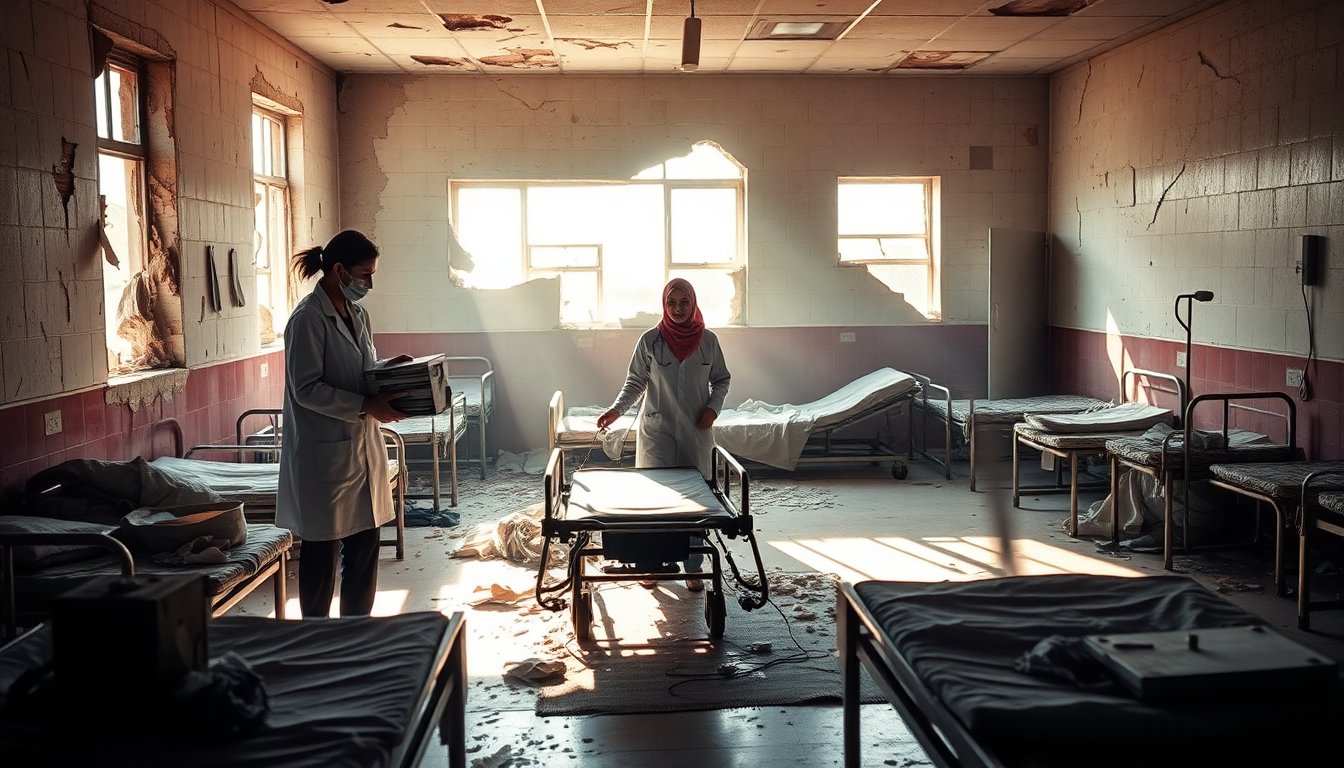Table of Contents
The humanitarian situation in Sudan is deteriorating rapidly as the Rapid Support Forces (RSF) launch devastating attacks on essential medical facilities. This alarming trend reached a critical point when el-Fasher Hospital in North Darfur was shelled, resulting in the tragic loss of at least 12 lives and injuring 17 others, according to medical sources.
Among the injured are a dedicated female doctor and a nursing staff member, highlighting the direct impact of violence on healthcare providers. The Sudan Doctors Network labeled this incident as an egregious violation of international law, asserting that the bombardment of health facilities constitutes a war crime that blatantly disregards civilian safety.
The impact of the paramilitary’s actions
The RSF’s assault on el-Fasher Hospital is not an isolated case; it marks the second attack on the facility within a mere 24 hours. Just the previous day, eight individuals tragically lost their lives in an assault on a maternity ward. The relentless violence underscores the RSF’s aggressive campaign to take control of el-Fasher, intensifying hostilities against the regular Sudanese army.
This conflict, which has persisted since April 2023, has resulted in a staggering humanitarian crisis. With tens of thousands dead and approximately 15 million displaced, the situation has spiraled into what the United Nations describes as the world’s largest humanitarian disaster. A significant portion of the population—nearly 25 million—now faces acute hunger.
The blockade’s effects on civilian life
The RSF has enforced a blockade on el-Fasher since May 10, 2024, despite ongoing international warnings regarding the imminent risks to civilians. This city, crucial for humanitarian operations in the broader Darfur region, has been left in a precarious state. Reports indicate that almost 80 percent of households requiring medical assistance are unable to access necessary care.
As medical personnel struggle to address the overwhelming needs of the injured, they face constant threats from daily assaults. After 18 months of siege, el-Fasher—home to around 400,000 residents—has been drained of essential resources. Families have resorted to consuming animal feed, which has become scarce and exorbitantly priced.
Community responses and challenges
Local resistance committees, comprised of volunteers dedicated to coordinating aid, report that most soup kitchens have shut down due to food shortages. The humanitarian efforts that once provided a lifeline to the community are now severely compromised, leaving many to fend for themselves in the midst of escalating violence.
The exodus from el-Fasher is staggering, with over one million individuals fleeing since the onset of this civil war. The urgency of the situation has escalated, particularly following the RSF’s increased aggression after losing control of Khartoum earlier this year. Activists have described el-Fasher as resembling an open-air morgue, with civilians suffering from starvation and neglect.
Calls for international intervention
In light of these harrowing circumstances, the Sudan Doctors Network has issued an urgent appeal to the international community and the United Nations Security Council. They demand immediate action to safeguard health facilities and protect civilians from ongoing violence. The RSF must be held accountable for their actions, as the humanitarian crisis in el-Fasher continues to unfold.
The dire conditions witnessed in Sudan call for a concerted global response. The lives of countless individuals hang in the balance as the RSF’s relentless campaign threatens not only the remaining healthcare infrastructure but also the very fabric of civilian society.


